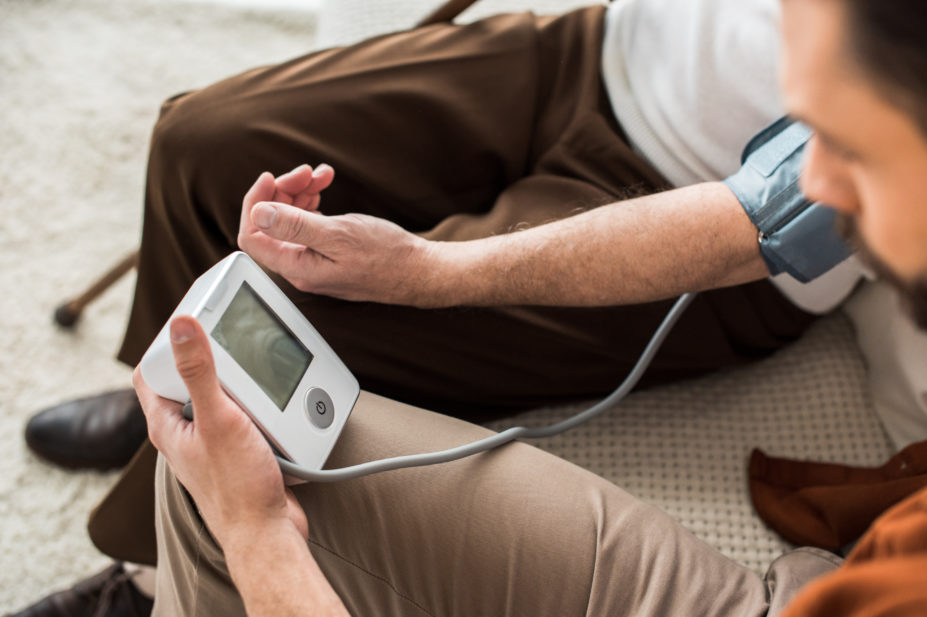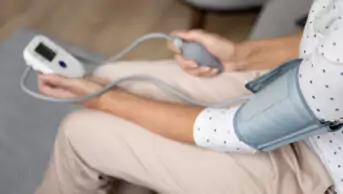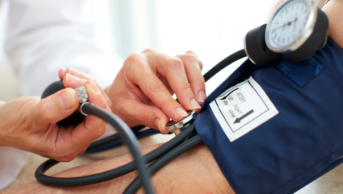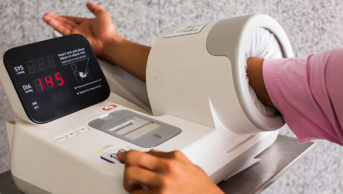
Shutterstock.com
Pharmacological treatment of hypertension can be provided by “non-physician professionals” such as pharmacists, according to the first global hypertension guideline to be published in 20 years.
The World Health Organization (WHO) hypertension guideline is aimed at adult, non-pregnant patients, who have been appropriately diagnosed with hypertension and counselled about lifestyle modifications. It provides new recommendations on the threshold for the initiation of pharmacological treatment for hypertension, as well as recommendations on intervals for follow-up, the target blood pressure to achieve for hypertension control and which healthcare workers should initiate treatment.
It advises initiating pharmacological antihypertensive treatments for individuals with a confirmed diagnosis of hypertension, and systolic blood pressure of ≥140 mmHg or diastolic blood pressure of ≥90 mmHg. For those with existing cardiovascular disease or with high cardiovascular risk, diabetes mellitus or chronic kidney disease, it recommends initiating treatment at a systolic blood pressure of 130–139 mmHg.
The guideline provides the basis for deciding whether to initiate treatment with monotherapy, dual therapy or single-pill combinations, as well as guidance for countries selecting medicines and algorithms for hypertension control for their national guidelines on hypertension management.
It also recommends that the pharmacological treatment of hypertension can be provided by “non-physician professionals”, such as pharmacists and nurses, as long as the following conditions are met: proper training, prescribing authority, specific management protocols and physician oversight.
“Where medicines are initiated, these need to be optimised to control blood pressure to target levels, and pharmacists in both GP practice and community settings are well placed to ensure patients are reviewed regularly and are offered adherence support,” said Helen Williams, consultant pharmacist for cardiovascular disease (CVD) at South East London Clinical Commissioning Group and national specialty adviser for CVD prevention at NHS England and Improvement.
On 23 August 2021, the Pharmaceutical Services Negotiating Committee announced that community pharmacies in England could receive up to £1,800 in incentives to run a service that checks patients for hypertension from October 2021, following the latest round of pharmacy contract negotiations.
“Early prevention interventions, such as smoking, weight management, diet, increased physical activity and alcohol moderation, are essential to prevent or delay the onset of hypertension and reduce overall cardiovascular risk,” said Williams.
“More needs to be done to ensure early detection and the recently announced rollout of the community pharmacy hypertension case-finding service in England will support this.”
At the same time as the guideline was published, a comprehensive analysis carried out by Imperial College London and the WHO, published in The Lancet on 24 August 2021, highlighted that the number of people with hypertension globally had doubled between 1990 and 2019.
In addition, despite being relatively easily to diagnose and treat, 41% of women and 51% of men with hypertension worldwide in 2019 were unaware of their condition, and more than half of those with the condition were not being treated for it.
Rates were found to have dropped significantly in high-income countries, including the UK, but had increased or remained unchanged in many low- and middle-income countries, especially those in Oceania.
“Despite medical and pharmacological advances over decades, global progress in hypertension management has been slow and the vast majority of people with hypertension remain untreated, with large disadvantages in low- and middle-income countries,” said Majid Ezzati, chair in global environmental health at Imperial College London and senior author of the study.
READ MORE: Pharmacies to get up to £1,800 in extra contract funding for providing heart checks


